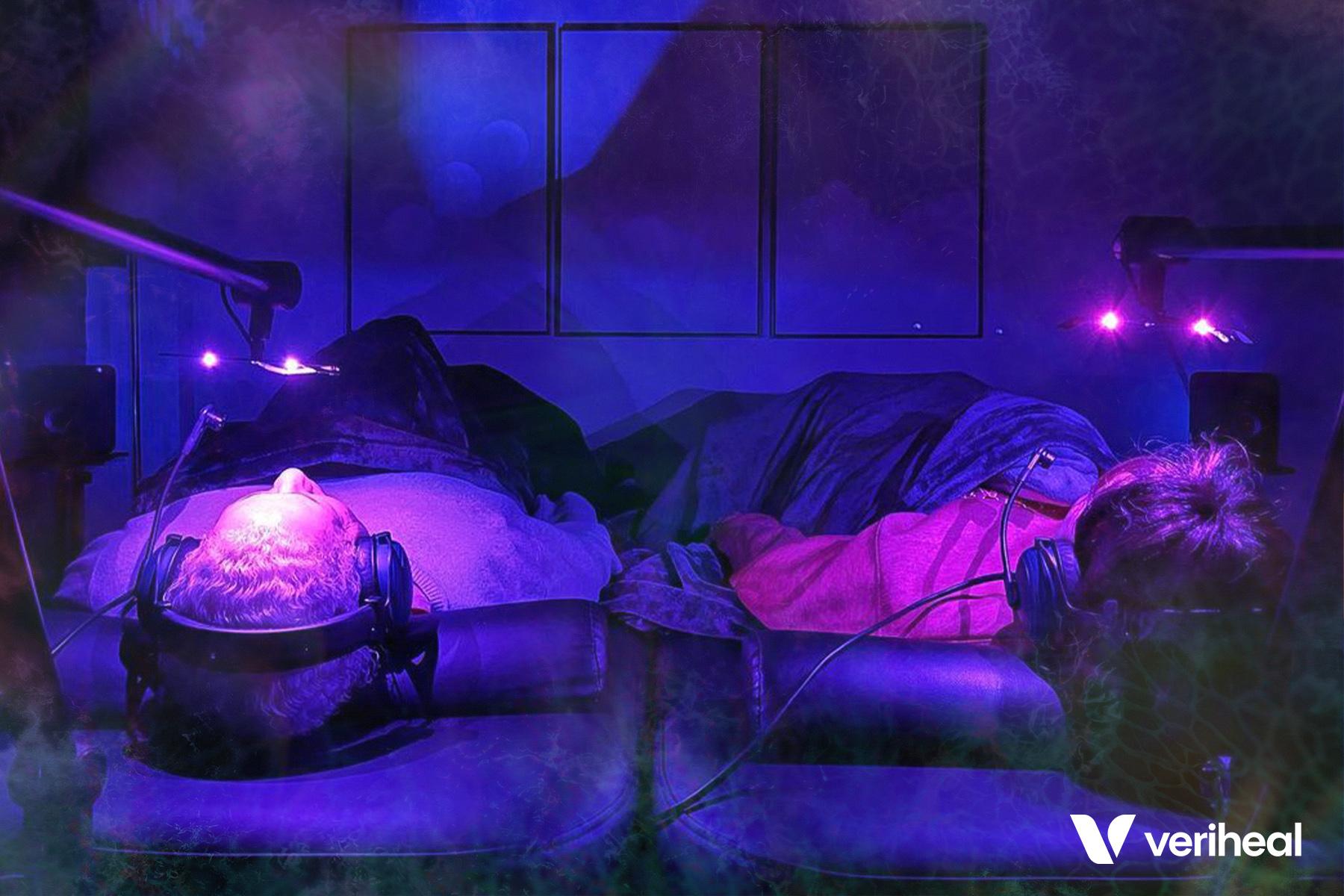The Reality Center, a Santa Monica-based wellness company, offers clients the therapeutic benefits of psychedelic substances using drug-free experiences of “digital psychedelics.” The process uses customized combinations of sensory stimulation from pulsing lights, sounds, and vibrations to facilitate an experience similar to that produced by psychedelic drugs.
Using neuroscience and biofeedback technology, digital psychedelics direct the mind and body toward a meditative state by providing sensory inputs that activate the same parts of the brain that are stimulated during deep meditation and psychedelic therapies. This state removes your body from “fight or flight” mode and allows for recovery from stress and trauma. The approach is based on Reality Center co-founder Don Estes’ theory of sensory resonance, according to which we can essentially “reset” the body’s autonomic nervous system by synchronizing the visual, aural and vibrational sensory mechanisms.
The Experience
There are several options for therapy at the Reality Center ranging in price from $59-$299. The highest priced option takes 90 minutes and provides the most immersive and customized experience. First, your intention or mantra for the session is spoken into a voice analyzer, which captures your unique vocal frequencies to determine the therapeutic colors, sounds, and vibrations that will be used in your experience. Next, you position yourself atop the Wavetable, a sort of massaging table that uses a cushion of vibrating mineral water with the same density of blood and tissue, which creates the feeling of “floating on a bed of frequencies.” To complete the setup, you are further equipped with headphones, LED lights, and vibrating pads for the chest, hands, and feet. A facilitator begins the session and adjusts the stimulations throughout the experience to induce a meditative state, “where time drifts away and your consciousness takes over.”
With all the procedures and sci-fi gear required for a digital psychedelic experience, it seems unlikely that the effects could possibly be symmetrical with those produced by the entirely different biochemical processes involved in drug-induced psychedelic experiences. However, participant testimony from an article in the LA Times suggests that the altered mental state induced by digital psychedelics can produce the same emotions, sensations, hallucinations, and lasting effects associated with psychedelic drug experiences.
Adam Schorn provides a description of the experiences produced in a digital psychedelic therapy session at the Reality Center:
Why You Should Get Your Medical Marijuana Card
Veriheal has satisfied millions of patients nationwide by giving them access to these benefits
- Larger purchase limits
- Peace of mind
- Enhanced legal protection
- Access to higher potency strains
- Save up to 25% on cannabis purchases
- Skip the line at the dispensary
“I had the sensation of hurtling through space…it seemed as if I was nothing but sand passing through a reality sieve, all my constituent molecules dissolving at the waterline of a vast ocean…I was one with the swirling fractal rainbow aura at the center of the universe and, for a brief moment, it felt as if I was staring backward through time to observe my own swirling double-helix strands of DNA taking shape out of the cosmic soup of nothingness. I felt hot tears well into the corners of scrunched-shut eyes. They were tears of gratitude, tears of suddenly feeling at peace.”
People who have consumed psychedelic drugs such as psilocybin, DMT, or LSD describe similar feelings. The above description presents many features analogous to those characteristic of the psychedelic drug experience. Stereotypical effects induced by psychedelics include: encounters with a “god-like” entity, out-of-body experiences, dissolution of central self (“ego dissolution”), and altered awareness of time. These critical features found in drug-induced psychedelic experiences are consistent with the described features of the digital psychedelic experience.
Digital Psychedelic technology is still in its formative stages, and we are yet to scientifically study the results achieved through therapeutic uses of this technology. The treatment has potential to benefit people with PTSD, anxiety, insomnia, depression, and other emotional or physical dysfunction, but more research is needed for us to understand or verify the efficacy of Digital Psychedelic therapy. Despite the current deficit in scientific evidence, it definitely seems as if something special is going on in Santa Monica that may be worth looking into.
The Reality Center has donated over 300 treatments to support veteran mental health. To learn more about how to access veteran treatment, or how you can contribute to veterans seeking treatment, check out the Reality Center’s “22 Saved Campaign” initiative.
Author, Share & Comments
















